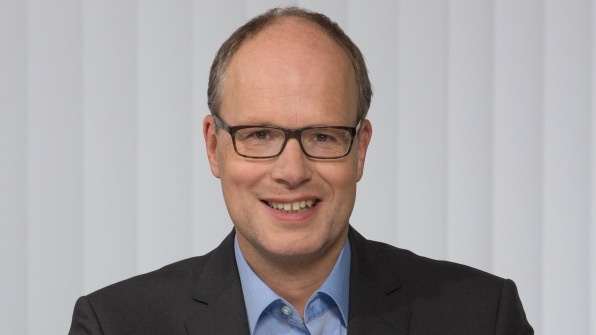Mr. Brandes, we’re currently experiencing a period of great market change in many sectors of the process industry. How are companies responding to that change?
Jürgen Brandes: The current climate in the process industry – tough in some areas – is motivating many of our customers and partners to rethink their strategies and business models. They’re asking themselves: What do we need to do to be more successful in future? And what partners will be able to provide substantive assistance? I believe that the answers to those questions present a wealth of opportunities.
What answers can Siemens provide?

Jürgen Brandes: We have broad-ranging expertise in many areas that make companies more competitive, efficient, and flexible, and we bring the right expertise to the table. Working alongside our customers and experts in the fields of plant manufacturing, process development, and IT enables us to generate excellent and innovative ideas. As partners, it’s important that we listen carefully and respond to the questions and challenges that are emerging. This will allow us to work together to find the best solutions – or develop new ones.
The information provided by our tools often delivers significant added value.
Can you give an example?
Jürgen Brandes: One issue that’s currently troubling many companies is plant documentation and approval. Regulatory requirements are becoming ever more stringent, which entails greater cost and effort to compile and maintain the relevant documents. Our design tools help customers compile plant data and documents faster and manage them more efficiently. Another example is preventive plant maintenance: The information provided by our tools often delivers significant added value.
A while back we worked with a leading chemical company to develop an application based on our XHQ software, which analyzes plant states across multiple sites. That allowed us to detect a fault in a key component in time to prevent downtime – so the joint project paid off for the customer. Now we’re talking about how the solution can be expanded. Our MindSphere platform, for example, provides us with entirely new possibilities for connecting numerous data sources to the Cloud and to customized apps. That will lead to new ideas for enhancements. Our collaboration with the customer is changing as a result, too. Thanks to projects like this, we’re increasingly being seen as a business consultant rather than just a product or system supplier.
This kind of close collaboration establishes trust, but it also creates interdependences. How do your customers deal with that?
Jürgen Brandes: There have always been interdependences. When a company opts for a particular control system, it’s a commitment for years if not decades. What’s new is that interdependences extend beyond engineering into areas like data and knowledge. Today, when we talk about new business models from joint development projects to operator models – it’s especially important for all the stakeholders to think about how knowledge can be protected while at the same time utilizing third-party expertise. This issue will occupy us even more in the future – especially in the field of digitalization.
I’m certain that we’ll be able to gradually exploit the potential for digitalization in the process industry, too.
Jürgen Brandes, CEO der Division Process Industries and Drives der Siemens AG
The process industry is considered to be quite conservative. Don’t many companies have major concerns about these changes?
Jürgen Brandes: I don’t think it’s possible to avoid these issues. Digitalization has already delivered a major efficiency boost in many sectors. Today companies are able to easily utilize large-scale computing capacities and services in the Cloud – as with our MindSphere. This means, for example, that administration and logistics processes can become faster and more agile. It seems only logical to me that manufacturing should also be able to benefit from those technologies. A key factor is that the various new approaches take into account the specific demands and concerns of the process industry, especially with regard to plant safety and protecting investments. We’ve already implemented groundbreaking solutions in other industries, and I’m certain that we’ll be able to gradually exploit the potential for digitalization in the process industry, too. But doubtless, there won’t be a single big solution; rather, we’ll achieve minor improvements in many areas, which will then deliver an overall competitive edge. This is how we’ll establish trust in the technologies and in Siemens as a partner. Achieving better answers and solutions in a digitalized world requires mutual cooperation, as numerous projects with well-known chemical companies such as Evonik increasingly indicate.
Is Siemens going to have to change to achieve this?
Jürgen Brandes: We’re already very well prepared in many areas. We have account managers who are doing an outstanding job providing our customers with the full range of our expertise. Always open to new ideas, they are delivering multiple benefits both to our customers and to Siemens. For example, we recently equipped an entire ethylene plant for Braskem that incorporated numerous systems on a greenfield site in Mexico. The project involved coordinating between different departments, EPCs, and OEMs. Working alongside Braskem, the complex project was a complete success.
And we have terrific teams in our departments and regions, implementing new ideas and translating these visions into real success stories. But yes, the changes are also challenging us to rethink our own processes. That will allow us to exploit the opportunities presented with new business models. And as CEO of the Process Industries and Drives Division, it’s part of my job to promote innovation and motivate our employees to pursue new ideas for achieving success with and for our customers.
Mr. Brandes, thank you for talking with us.




















